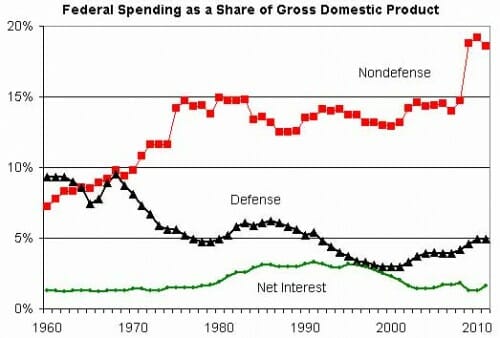There used to be two Americas -- the small portion who were criminals and the large majority of law-abiding citizens. Now there is just one America, since with the proliferation of regulations, we all are guilty of something. If we fall out of favor, we can all be rung up on charges.
Local Conservative pundit Greg Patterson makes this observation about the looming Jon Edwards prosecution, and observes that as much as he may dislike Edwards, his prosecution is downright scary
It looks like former Presidential candidate John Edwards is about to get indicted. Edwards is an awful person who embodies the characteristics that most of us despise. His hypocrisy and hubris together with his unbelievably boorish behavior while his wife was dying of cancer are the stuff of Greek tragedy.
However, Edwards' downfall is also a great example of how the US has so criminalized the political process that the Government can indict anyone who falls out of favor. Once it was clear that Edwards no longer enjoyed any personal political authority, prosecutors combed through his entire political history and found this charge:
Much of the investigation, however, focused on money that eventually went to keep mistress Rielle Hunter in hiding along with former campaign aide Andrew Young, who claimed paternity of Hunter's child in 2007 so that Edwards could continue his White House campaign without the affair tarnishing his reputation. Investigators have been looking at whether those funds should have been considered campaign donations since they arguably aided his presidential bid.
Really? Someone gave Edwards a bunch of money so that he could hide his mistress...and those funds "arguably aided" his presidential bid? That means that every dime that any candidate has ever received could later be classified as a political contribution because it "arguably aided" his candidacy.
How many millions has Edwards spent defending himself from this charge? How much time is he going to spend in jail? How many other candidates--or contributors--can be indicted for falling out of favor?
By the way, kudos to Patterson for bringing up this point in the context of his political opposition. All too often groups seek to establish terrible precedents in the name of counting coup on political opponents. For example, I have been depressed at how hard certain of my fellow climate skeptics have labored to try to bring warmist Michael Mann up on criminal charges.
By the way, I disagree with the second half of Patterson's post, wherein he tries to draw a parallel between the Edwards affair and shenanigans and political payoffs around the Fiesta Bowl. Patterson describes politicians as having been "victimized" by the Fiesta Bowl, such victimization taking the form of the politicians accepting luxurious trips to college football games and failing to do all the necessary reporting for these boondoggles.
I have a hard time seeing this as victimization. It would take a really, really, really naive and stupid politician to credibly argue that these trips were purely fact-finding trips and that they had no idea these expenditures represented an effort of the Fiesta Bowl to woo them in return for various quid pro quo's. Politicians should not even be considering public subsidies of college football games, particularly ones that are so incredibly lucrative to the schools and bowl organizations. Politicians could have avoided being "victimized" by such lobbying by simply saying that their city/county/state was not going to be handing out taxpayer-funded goodies to sports teams and games. I don't necessarily want to send these guys to jail, but calling them victims is a joke.
It is interesting to see this attitude from a Conservative. My mother-in-law the Boston Liberal takes the same line, that the evils that result from lobbying and outright bribery are entirely the fault of private enterprises and not of the politicians themselves. Of course, the libertarian position on this is simple -- the fault is not any particular person, but the changes in government power that have put so many chips on the table. If the government has the power to give or take billions, to make or kill whole industries, then it is worth a lot of money for individuals to harness this power or at least to protect themselves from being gutted by those who do manipulate the power. To this end, 19th century corruption arguments are almost quaint, where the biggest concern was politician's ability to appoint their friends as postmaster. Reduce government's power to give and take arbitrarily, and the amount of money spent on lobbying, elections, and outright bribery will fall precipitously.
